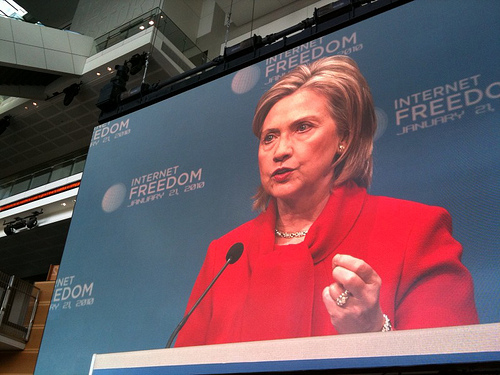wikileaks
CPD's Media Monitor Report on Wikileaks: America's Cablegate covers the effects of the staggered release of nearly 250,000 U.S. diplomatic cables which began in late 2010.
The ongoing release of 250,000 U.S. diplomatic cables by Wikileaks started in late 2010, in staggered releases coordinated with global news organizations, including: The New York Times, El País, The Guardian, Der Spiegel, and others. The released cables offer a look inside the American diplomatic process (and the diplomatic process in general), revealing the distance between public and private communication.
The slow trickle of leaked diplomatic cables from Wikileaks may not be in the headlines as much as it was when it started, but revelations keep pouring out of the website.
The State Department has secretly financed Syrian political opposition groups and related projects, including a satellite TV channel that beams anti-government programming into the country, according to previously undisclosed diplomatic cables.
Ecuador has announced it is expelling the US Ambassador in Quito. The move follows the release on Monday by the whistle-blowing website Wikileaks of a US diplomatic cable alleging widespread corruption within the Ecuadorean police force.
In an effort to deflect and counteract leftist regimes in Latin America during the Cold War, Washington attached great political importance to its propaganda efforts. From Cuba to Chile, the US sought to promote friendly media while cultivating the support of right-wing reporters.
Chief State Department spokesman P.J. Crowley quit on Sunday after causing a stir by describing the military's treatment of the suspected WikiLeaks leaker as "ridiculous" and "stupid," pointed words that forced President Barack Obama to defend the detention as appropriate.








